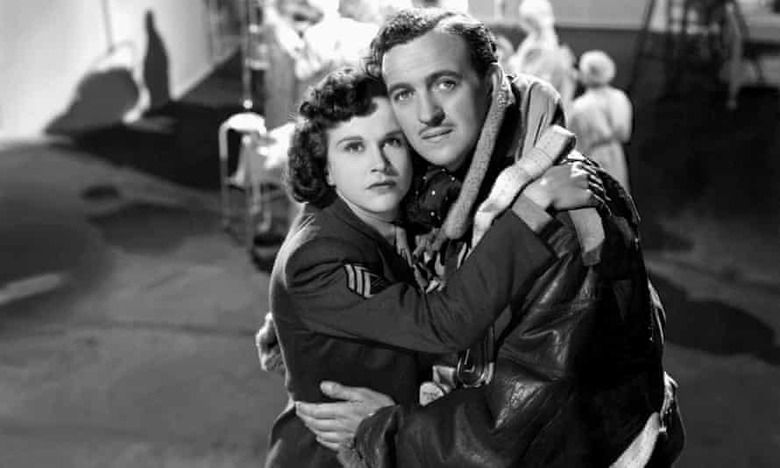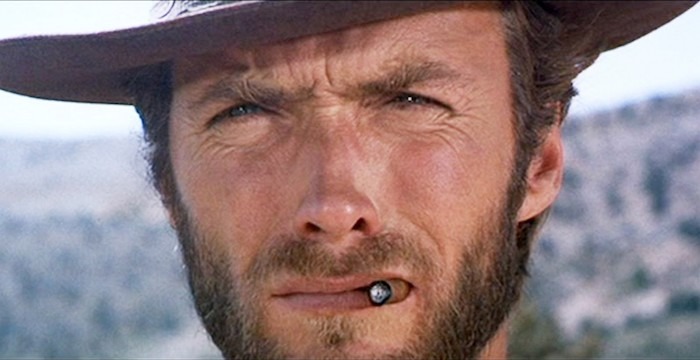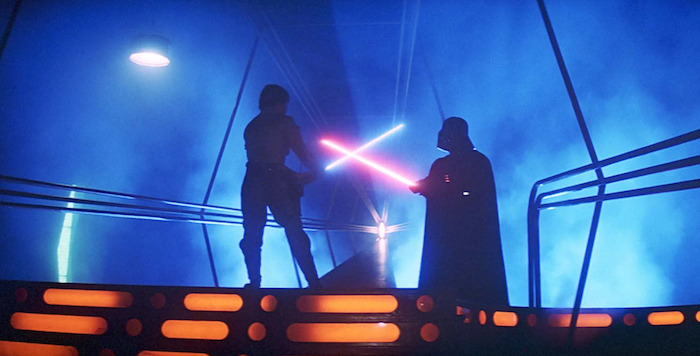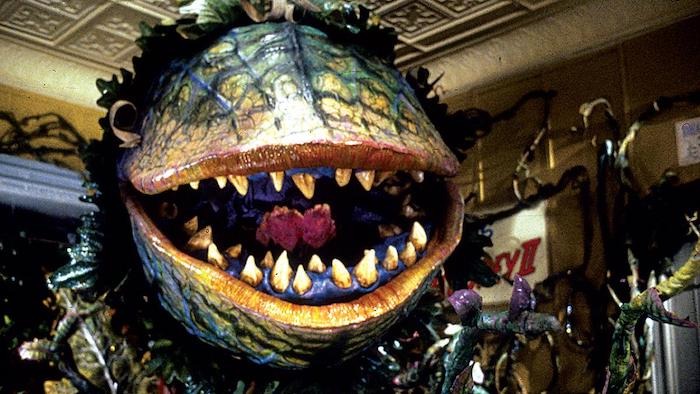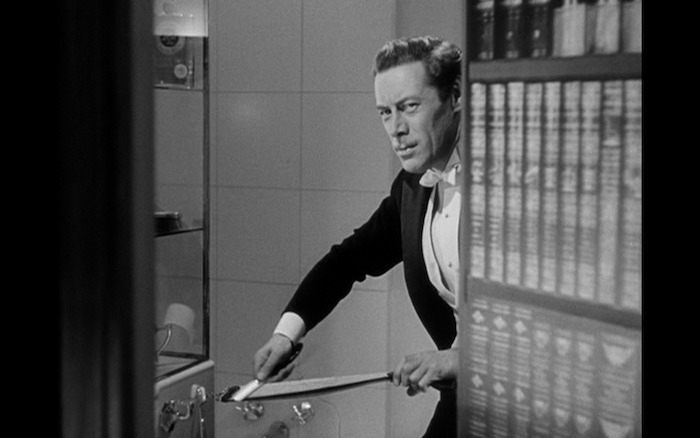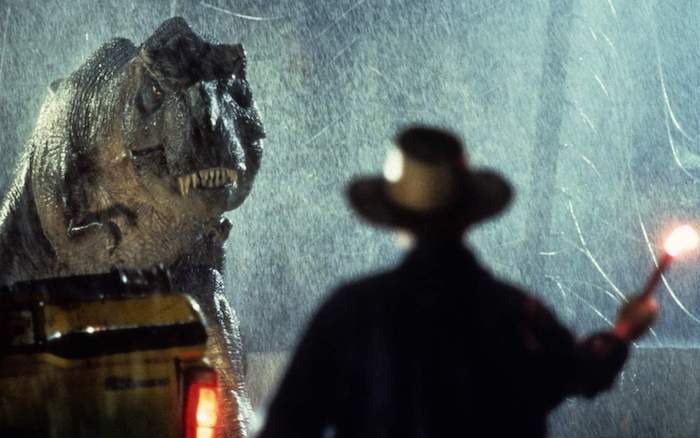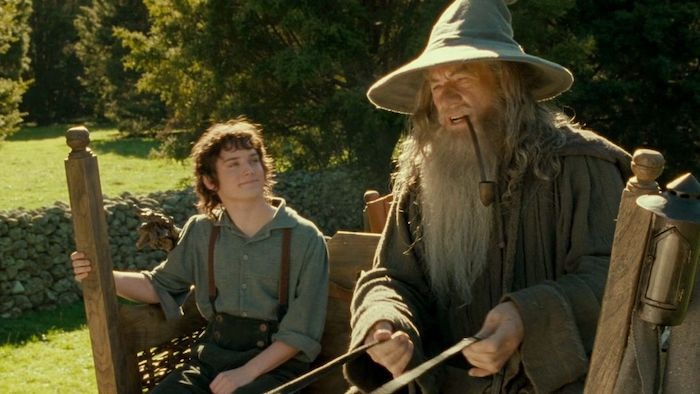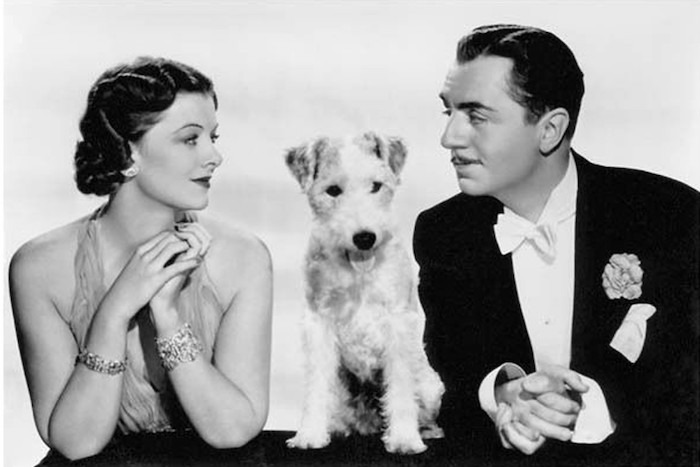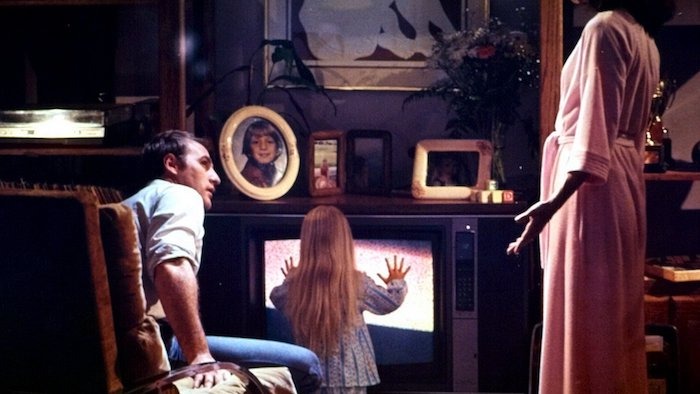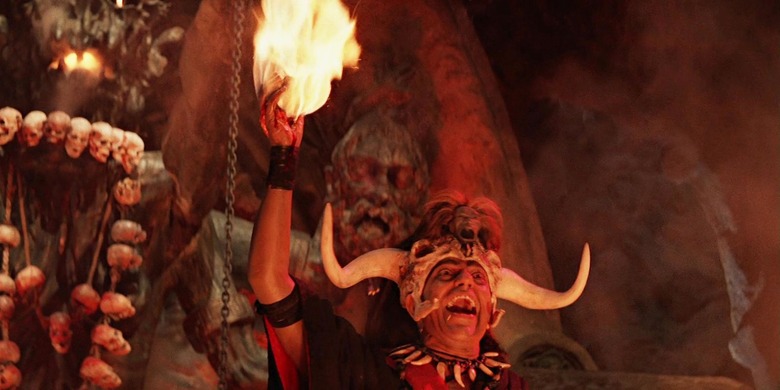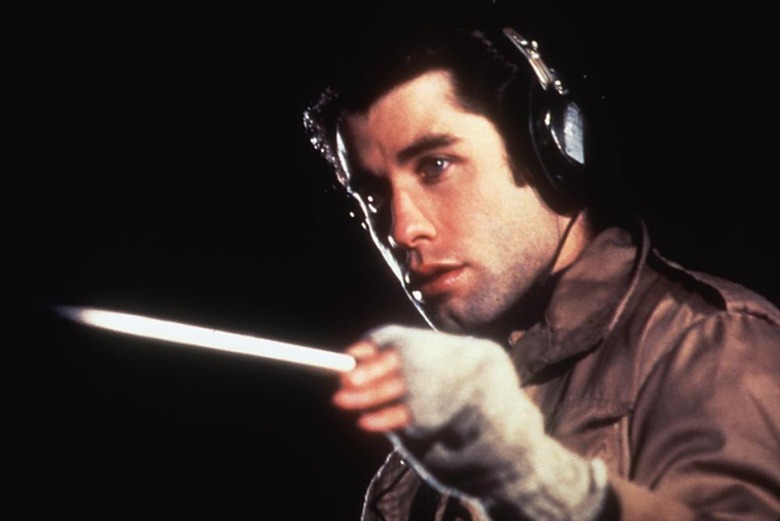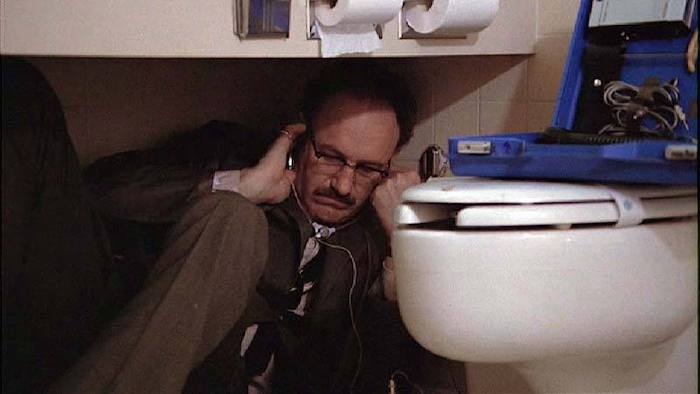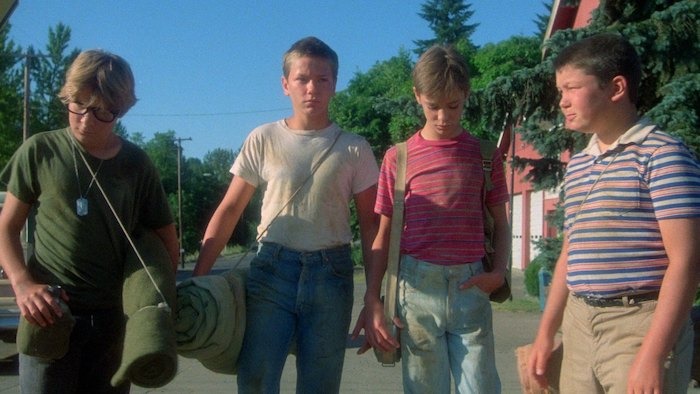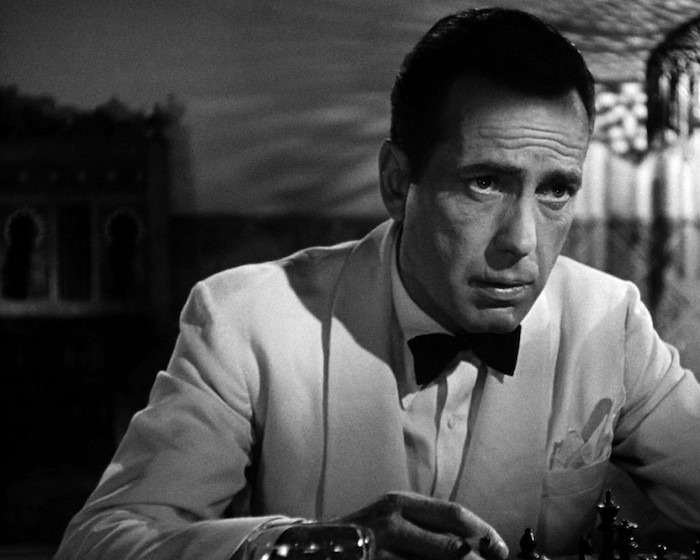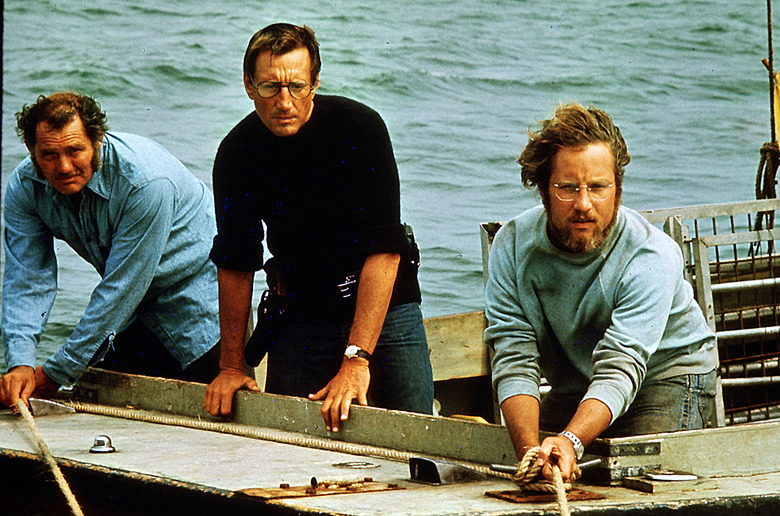Eric Vespe's Favorite Movies Of All Time
Ranking films is always, always, always a fool's errand. The whole reason we like cinema in the first place is because we go into each and every film with our own unique baggage. Strike that, we go into each and every viewing of a film with that baggage. So, a movie you saw in your 20s might have bounced off of you, but when you watch it again a decade later you're going in with 10 more years of life experience and it can hit you in a radically different way.
A prime example of this phenomenon for me is Steven Spielberg's A.I., a movie I liked a lot when I saw it at 20, but which absolutely devastated me when I rewatched it in my 30s. I hadn't changed much as a person, I still held the same core personal beliefs and had the same amount of empathy that I did in my younger days. What did change was a kind of emotional investment that went from being purely hypothetical to a lived experience. In the time between that initial viewing and the one that left me a wet-cheeked mess, I had bonded very closely with my young nephews and suddenly the themes of child abandonment hit me in a more real way that turned that film into an all-timer for me.
All that is to say that the below list of 15 movies can and probably will shift... hell, they might change as I'm writing this thing. But what I will say is if you want to get an idea of my tastes and who I am, these are some favorite films that paint you a picture of Eric Vespe.
I tried my best to include turning point movies for me, films that had a huge impact at a particular moment in my life and I tried to do that without making this whole damn thing a list of Steven Spielberg's best movies.
My tastes are all over the map, but when building the below, I found I axed a lot of super serious "real cinema" entries, the kind of stuff NY Film School grads would sit around discussing in a dark mahogany library while sipping cognac. I like a whole lot of those movies, too, don't get me wrong, but the cinema that speaks to me on an emotional level doesn't tend to be those kinds of movies.
So, here are 15 of my favorite movies. There's another hundred or so that I love with every fiber of my being, but these are a good representation of what I view as all-timers.
15. A Matter of Life and Death (1946)
The lowest entry on my list is a more obscure oldie. It's called A Matter of Life and Death (also known as A Stairway to Heaven) and it's another brilliantly made high concept film, David Niven and Kim Hunter.
The movie opens with a British pilot in a flaming plane. He's shot up, the plane's running on fumes. The pilot plans on jumping out into the ocean. Surely he won't survive, but it's better than dying in a flaming wreck when the fuel runs out.
In his final moments he talks with an American radio operator, played by Kim Hunter, and in this brief chat sparks fly.
He still jumps, but then awakes on the shore the next day, virtually unharmed.
Most of the movie cuts back and forth between earth and heaven. Heaven is represented a little Terry Gilliam-esque. Lots of paperwork and order, but alarms start going off. Their tally is off by one. Looks like someone missed picking up that pilot and an angel is sent to Earth to talk him into crossing over.
There's a question as to whether or not all the heaven stuff is going on in Niven's mind and because this film was made by British masters Michael Powell & Emeric Pressburger, we're not given a cut and dry answer.
It's also gorgeous. The film alternates between eye-popping Technicolor and crisp black and white. You'd think Powell & Pressburger would use color for heaven, but they don't. Heaven is black and white and our world is technicolor. That's a pretty clear statement on not ignoring the now for the promise of something better maybe down the line.
The whole thing culminates in a heavenly trial to determine whether or not Niven gets to stay behind with his newfound love or if he has to remit himself to the other side and let death take him.
14. The Good, The Bad and The Ugly (1966)
Quentin Tarantino once called The Good, The Bad and The Ugly the best-directed movie of all time and I'm inclined to agree. Sergio Leone's third and final "Man With No Name" entry is a widescreen epic masterclass in framing, camera movement, score and sound design. It's an epic in every definition of the word. I am, of course, referring to the original theatrical cut, not the more bloated and interesting, but less great, extended edition that seems to be almost all you can find on disc these days.
Eli Wallach's Tuco is one of the best characters ever put to screen. He's an intelligent weasel, a man who is only out for himself at all points, but you love him anyway. And he never betrays that character, even at the end of his arc.
The finale has two of my favorite pieces of movie music ever produced. Ennio Morricone's "The Ecstasy of Gold" and "Il Triello" (this is the final stand-off moment piece) gives me goosebumps every single time I hear them.
Iconic, stunning, emotionally-involving, impeccable world-building, everything that movies can and should be wrapped up in one film.
13. The Empire Strikes Back (1980)
It's impossible to be born between 1970 and 1990 and not be obsessed with Star Wars. There are people who claim they aren't, but we all know they're damned liars.
Star Wars (or A New Hope if ya' basic) may have set the stage for the franchise's dominant legacy, but The Empire Strikes Back sealed the deal. Empire's importance to the series is unquestionable from both a creative and business standpoint. This is when George Lucas miraculously wrestled the rights back from Fox and owned Star Wars outright, which meant the series could be the first big budget independent series ever.
It's no wonder, then, that Empire is darker, leaner and meaner than Star Wars. The heroes lose. All over this movie, they lose. Han is tortured then frozen in carbonite, C-3PO gets blown up, Leia barely escapes, Luke loses a hand and fails all the tests Yoda sets out for him.
It's the dark movie nestled between two popcorn films and works as epic fantasy, thrilling sci-fi, intimate character study and effects bonanza.
No matter which Star Wars movie is your favorite, Empire is the reason for the depth of this franchise.
12. Little Shop of Horrors (1986)
Yeah, so I'm a pretty big sucker for movie musicals and one of my favorites is Frank Oz's Little Shop of Horrors. From an effects standpoint alone, this film is a masterpiece. Audrey II is one of the most impressive practical effects of all time. The way the lips move is more believable than just about any multi-million dollar CGI character.
Alan Menken and Howard Ashman's music is on constant rotation in my headphones and it's the rare movie where we get to see Rick Moranis as the main character. And man, does he kill it.
Catchy music, super dark humor, mind-boggling effects... all this adds up to one of my most rewatched movies. Effortlessly great, this one.
11. Unfaithfully Yours (1948)
This list wouldn't be complete without a Preston Sturges title. Sturges might not have the name recognition of, say, a Frank Capra or Orson Welles, but of that era he has one of the best track records of any filmmaker.
Sturges was famous for his rapid-fire dialogue and hilarious scenarios and this is my personal favorite of his films. Sullivan's Travels or The Lady Eve are held in higher esteem by most cinephiles (possibly because they got the Criterion treatment) and those movies are both amazing, but Unfaithfully Yours is the wombo-combo for me. It's a great, inventive idea and overflowing with jokes that hit you so fast you don't have time to recover before another biting quip slaps your other cheek.
The premise is this: the conductor of an orchestra is convinced his loving wife is cheating on him and then, as he's conducting, he daydreams about the different ways he can enact his revenge. Yes, it's mean — a husband daydreaming about murdering his wife or killing himself to make her feel bad. But it's told with such a lighthearted touch that it never feels heavy.
Sturges was a relatively unsung master and there was no way I was going to list 15 top movies and not include something of his.
10. Jurassic Park (1993)
If we're talking purely life-changing theatrical experiences, Jurassic Park is number one with a bullet. I was 12 the summer Jurassic Park came out. I remember seeing stories on the news about opening night lines wrapped around the block and seeing the very cool teaser trailer that didn't give away much at all. In fact, I think the only dinosaur they showed was a raptor's clawed hand opening the door.
I was with my grandparents the weekend Jurassic Park came out. They never went to the movies (I can still hear my grandfather complaining about floors so sticky he'd damn well lose a shoe if he went to a movie with me), but would drop me off at almost anything I wanted to see with some popcorn money to boot.
Hey, it was the early '90s and 12-year-olds were just allowed to wander around. Sounds kinda risky to adult me, but kid me loved it.
There was no line for the first Saturday morning showing, but by the time the lights dimmed, the theater was packed. Through a fortunate "everybody shift in and leave no empty seats" announcement I found myself dead center, a little more than halfway back.
I don't know if there's another single movie-going experience of my childhood that is so burned into my mind. I can remember I had Red Vines and Coke. I have a sense memory of the way the brand new, cranked up DTS sound seemed to send vibrations deep into my core.
No joke, that movie hit me so hard I saw it seven times that summer. Spielberg has made better movies since, but nothing that hit me as squarely as Jurassic Park did. I don't know if it's possible, to be honest, because I'll never be 12 years old seeing a Prime Spielberg blockbuster again.
As objectively as I can judge, Jurassic Park remains one of the most entertaining and inventive blockbusters ever made.
9. The Fellowship of the Ring (2001)
It's hard to not consider the entire Lord of the Rings Trilogy as one whole story when making this list, so I might cheat just a little bit and say that Fellowship's inclusion is also intended to hold the place for all three films.
For my money, it's still the most effortless of the three entries and that Mines of Moria sequence is hands down the best honest to God fantasy ever captured on film.
Analytically I can point to a thousand reasons why Fellowship of the Ring is incredible, from being perfectly cast, to Andrew Lesnie's photography to Peter Jackson's giddy sense of fun peppered throughout what is ultimately a very heavy story, to Howard Shore's soaring score. All that's well and good, but the real reason it's here is because it was a phenomenon upon release and I was swallowed up in it.
I was buying the toys and collectibles. I've been lucky enough to have spent some time in New Zealand and was even on set for some of the reshoots of Return of the King, and that era is burned into my being.
At the risk of sounding New Age-y, I spiritually connected with New Zealand as a direct result of these movies. Since 2003 I've been back over a dozen times and outside of Austin, it's the only place I've ever felt at home.
This trilogy is a warm blanket for me and represents some of the best times I've ever had with an audience watching new release movies.
8. The Thin Man (1934)
William Powell and Myrna Loy were so good together they co-starred in a dozen projects, at least half of which belonged to The Thin Man series.
They play a husband and wife duo named Nick and Nora Charles. They're both drunks, but happy drunks and happy to be drunk in each others' company. Nick Charles also happens to be a preeminent detective who keeps being pulled into murder cases and Nora is desperate to be along for the fun of the chase.
These absolutely delightful screwball comedies are simply magic, the chemistry between the two leads a boozy cocktail of good humor, genuine love, and gentle ribbing. There's something to like in every entry into this franchise, but that first movie is hard to top in terms of pure, unadulterated Nick and Nora being fun, rich drunks out to solve a crime.
7. Poltergeist (1982)
Poltergeist is my first memory. Not movie memory, mind you, my first memory as a human being on this Earth. I trace it back to around age 3 and I remember waking up in my babysitter's lap and Poltergeist is on TV. It's the scene where the coffin comes up out of the ground between Jobeth Williams and Craig T. Nelson, the lid opens and the skeleton's hair is blowing in the wind.
The scene is chaotic, lots of screaming and sound effects and it'll be forever burned into my brain.
Poltergeist is another movie where dark Spielberg gets to come and play. I don't want to summon the dreaded Who-Really-Directed-Poltergeist discourse, so for the sake of argument let's take the credits at face value and say Tobe Hooper directed the film and Steven Spielberg wrote it. There are whole books to be written about the true dynamic behind the scenes, but no question this was a Spielberg script and his creative fingerprints are all over the movie.
When Spielberg write, he tends to write dark. He has three screenplay credits: Close Encounters of the Third Kind, Poltergeist, and A.I., all of which are really f***ed up, if you'll pardon my French. All are familial horror stories. Close Encounters is about divorce, Poltergeist is about the loss of a child, and A.I. is about abandonment.
Poltergeist is ultimately a win for the Freelings, but Spielberg's script drags them to hell and back in the process and features some of my favorite practical horror effects of all time. There's an awe of the supernatural on display. Plus we also have one of the all-time best horror scores of all time with Jerry Goldsmith's otherworldly music.
This is a big cornerstone movie for ol' Vespe.
6. Indiana Jones and the Temple of Doom (1984)
I'm going to start this right off by saying that Raiders of the Lost Ark is unquestionably a better movie. It's a classic and, if I'm being honest, I originally had it on this list in place of Temple of Doom, but realized that if this thing is supposed to paint a picture of who I am and what I'm drawn towards then Temple of Doom has to be the one I include.
Temple of Doom is darker, a borderline horror entry to the series, and I have always been a horror kid at heart. Looking back with a more analytical eye, I think I also dug it because it was so different from Raiders, a film I love through and through.
This isn't a rehash (ahem, Last Crusade), but something wholly different and original for the series, which I think is largely what turned a lot of people off from it, even if they could only articulate "Blonde lady is annoying..."
The whole point of Temple of Doom is to take your expectations from Raiders and turn it 180 degrees. The pampered, whining starlett Willie Scott is the polar opposite of the down-in-the-dirt scrapper that Marion was. Indiana Jones isn't out trying to put artifacts in a museum, he's out for fortune and glory. He's profiting from the acquisition and sale of historic artifacts in this film, not preserving them.
A lot of people don't realize this, but Temple of Doom is set before Raiders, so you actually see Indiana Jones as you know and love him born in this film. He turns away from the selfish bastard that Marion talks about in Raiders in this film. On top of all that, it's also a showcase for Spielberg's craft, his absolutely supernatural talent at filming action set pieces.
So, Raiders may be the better movie, but Temple is my favorite.
5. Blow Out (1981)
Blow Out is about a Hollywood sound guy who is out late one night recording ambient noise (leaves rustling in the wind, the hooting of far away owls, etc) and records something that some very bad people don't want anybody to know about.Brian De Palma is famous for his flashier films, much like Francis Ford Coppola, but this one is my favorite, and without a doubt the best performance John Travolta has ever given.
Bonus points for making John Lithgow terrifying as a quiet assassin you absolutely don't want on your tail.
This is one I absolutely love introducing friends to. Not only is it a tense thriller, but De Palma's at the height of his visual storytelling prowess here, and his use of framing and lenses (there are some classic split diopter shots in this one) is second to none.
Plus it has one hell of an ending.
4. The Conversation (1974)
I paired The Conversation and Blow Out on purpose. They're siblings, in a way. Thematically, structurally, and from a film history perspective these two have a lot in common.
Francis Ford Coppola squeezed out this masterpiece between two other iconic films. This was his palate cleanser between The Godfather and The Godfather Part 2, and it is still my favorite thing he ever made.The Conversation is the story of Harry Caul, a professional snoop. He spies on people, using top of the line (for the mid-'70s) equipment to listen in on conversations (hence the title). On one job he hears something he shouldn't have and that's when the tension and paranoia kicks in.
This is peak Coppola. Part art film, part '70s thriller with Gene Hackman giving one of his best performances in the leading role. If you haven't seen it, then I highly recommend catching up to this low key masterpiece. You'll never look at toilets the same way again.
3. Stand By Me (1986)
If you know me, you know I'm a massive Stephen King fan. I spent a good amount of my childhood reading his books and, being a massive movie nerd, seeking out the film adaptations. There are a few God-tier adaptations, but gun to my head, I choose Stand By Me.
It's not horror, at least not overtly. The coming-of-age tale is about the quest to find a dead body, but the body itself isn't what's scary. It's real life around these poor kids, none of whom seem to have good homes to go to or parents who give a damn. There's a streak of adults abandoning or failing children in this movie and it's just heartbreaking.
But at the same time, it's also one of the most uplifting stories about friendship ever told. Rob Reiner set the gold standard for the coming-of-age movie with Stand By Me and I'm not sure it can ever be topped.
2. Casablanca (1942)
The movie that made me fall in love with black and white films. I think most kids born to my generation and beyond need something that pushes them over the "old" hump of black and white, and for me that movie was Casablanca.
So much of this film has made its way into pop culture that it's a little bit of a shock to watch it fresh and already know half the lines. And the whole thing feels surprisingly modern even today. The dialogue is crisp, the characters are well drawn and complex, and it has a deeply funny streak despite the relatively serious subject matter.
I get chills during the "La Marseillaise" scene every single time. That's the moment when the citizens of Casablanca defiantly sing the French National Anthem, overpowering the German invaders' attempt at singing their own.
Casablanca is an obvious choice, but it's an honest one. This movie is one of my most rewatched titles, a happy place movie.
Here's looking at you, kid.
1. Jaws (1975)
When I was a teenager, I attended a film festival where screenwriter Carl Gottlieb was a special guest. I approached him, asked him to sign a Jaws lobby card that I had and proclaimed that Jaws was my favorite movie of all time. He was shocked. Like, it was my favorite all-time movie? He knew it was popular, obviously, but even as recently as the mid-'90s it wasn't really talked about as more than a pop culture hit.
Thankfully that has changed in recent times. Jaws is commonly talked about as a classic beyond its monster box office status.
I've been obsessed with Jaws since before I can remember. I was born 6 years after Jaws was released and in my youth I wore out at least two VHS copies, including one my parents recorded off of TV for me that was missing the first 15 minutes because it was the second film on the tape, and when they recorded Superman: The Movie over the first film they didn't realize how long it was, which ate into the beginning of Jaws' runtime.
The reason Jaws takes the top spot for me is because it is the first film I saw that made me conscious of and curious about the artistry behind filmmaking. Spielberg's shot composition is impeccable. The famous dolly-zoom on Brody as he sees the Kintner boy being eaten is the one everybody talks about and copies, but that level of craft is all over this movie.
For instance, the shot of the guys leaving the harbor aboard Quint's boat is a slow push in on a window through a pair of mounted shark's jaws (foreshadowing much?). Also, this is the first time I recognized color theory in film, which is when a filmmaker uses a particular color to represent something. Yellow is the shark. It's the color of the Kintner boy's raft and the barrels that show his presence. When yellow is featured, you can bet the shark is near.
Jaws is a miracle of a movie. It has depth, raw emotion, complex characters and is one of the most thrilling films ever made. A lot can change on my favorites list, but Jaws has never moved from my #1 spot.
***
Anyway, that's a good rundown of some of my favorite movies, the ones that had the biggest impact and that I tend to think about on a near daily basis in some way or another.
Thanks for reading along!

